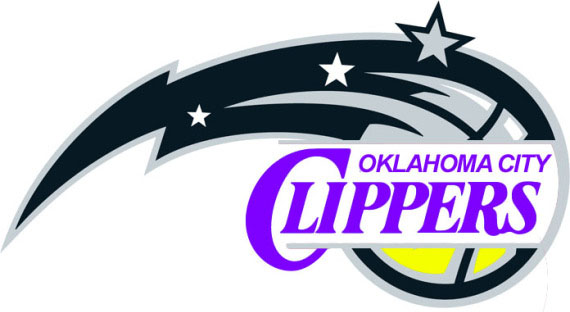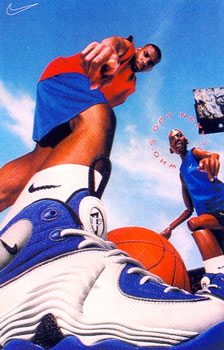
I've gotten into basketball again in the last couple of years, mostly thanks to a lot of great sports journalism on Grantland and elsewhere that captured my imagination. The problem is, the last time I was a huge NBA fan, Michael Jordan was the king of the world and Charles Barkley was not TNT comic relief, but a terrifying rebounding force that once took on Godzilla and told you to SHUT UP AND JAM.
My favorite team back then was the Orland Magic. They were new, had a cool brand, and were an exciting title contender. Shaquille O'Neal was the obvious hero of the team, but as I was the slightly counter cultural kid that always liked the secondary hero, I marked for Anfernee "Penny" Hardaway. It helped that he had kid friendly commercials: a hilarious puppet voiced by Chris Rock, dubbed Li'l Penny, sold his shoes and made him a constant All-Star Game presence even when he didn't deserve it. (The flip side of that is that now the guy behind the puppet is more famous that Penny Hardaway ever was.)
These days, all my heroes are gone (except for Grant Hill, what the hell?) and while the new cast of characters is great, I don't know how to pick a favorite team. Back in the day, teams had a long term identity and the way contracts worked allowed for a static cast of characters. Today, I don't know how to pick a team when they can be irrevocably changed every year. In today's NBA, picking a favorite team feels like having loyalty to a logo and a mascot; ultimately superfluous characteristics. I like players, not teams.
I've been told that it's not about repping a team, but a city. It's about hometown civic pride. While I love Los Angeles, I can't translate that into love for the Lakers. What does a recent transplant like Dwight Howard have to do with my love of LA culture? What does Steve Nash know about planning your life around freeway routes? Then there are old habits. Laker hating, even when I try and fight it, is something tucked into every corner of my mind. I came into basketball with the Showtime roster of Van Exel/Ceballos/Campbell. My entire family loved them, from my old grandmother to my young cousins, and so I decided to root against them. It made games more fun when there was competition in the living room.



